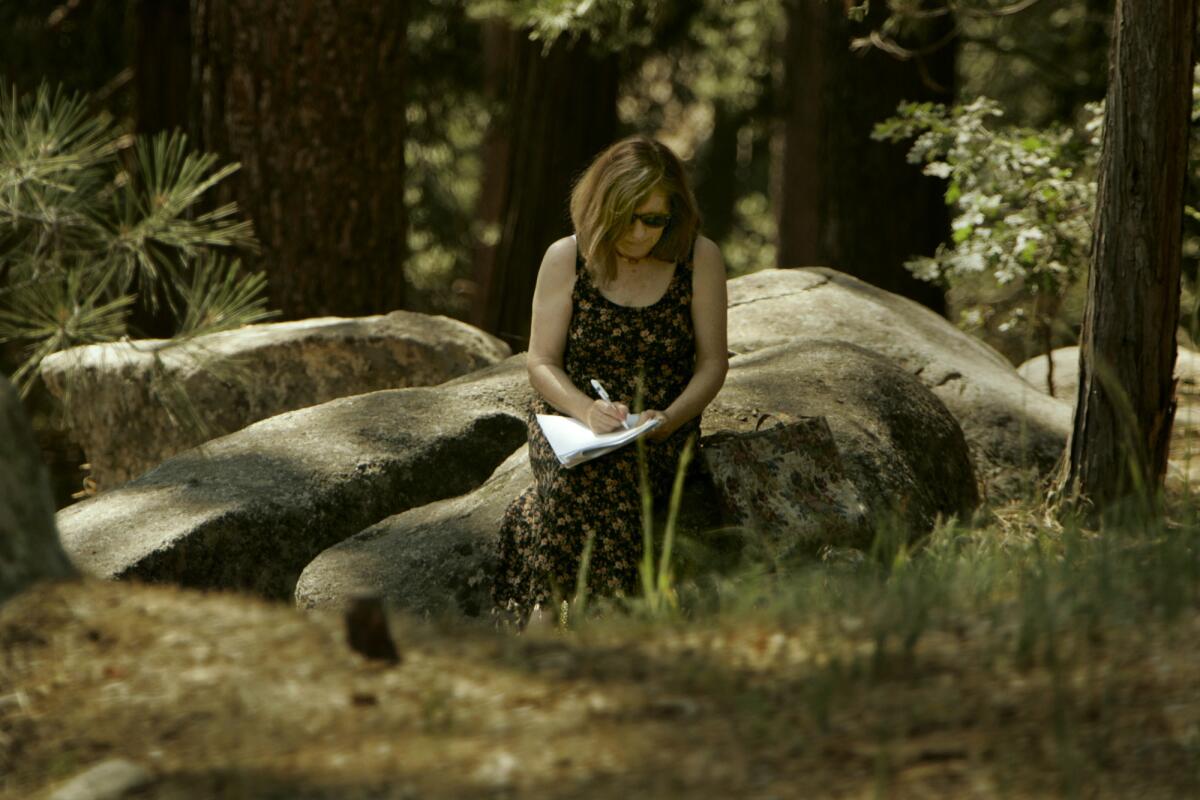The American Scholar crowd-sources a sonnet

- Share via
I have a friend, a poet, who once co-wrote a chapbook via answering machine. This was in the 1980s, when that was still a sparkling new technology; my friend and his collaborator would leave lines of verse on each other’s phone machines and voila! After a few weeks, they had a book. I’ve long loved the idea -- not just for the poetry but also for the way it illustrates our fundamental human ability to adapt. What is the highest purpose of technology? To help us communicate. The same, of course, might be said of poetry as well.
That friend and his project came to mind this week with the announcement that the American Scholar is using its website to crowd-source a sonnet, a project that comes billed as: “Next Line, Please.” Coordinated by David Lehman (poet, memoirist and series editor of “The Best American Poetry”), this is poetry as contest, yes -- over the next 13 weeks, lines will be submitted and winners chosen, until, in three months, there is a complete poem -- but also as communal act.
The sonnet, after all, is an open form, in the sense that it is often used to frame an investigation or to ask a question, as in Shakespeare’s famous “Shall I compare thee to a summer’s day?” This is one of the examples Lehman cites, along with “Emma Lazarus’ ‘The New Colossus,’ the poem with the stirring injunction that graces the Statue of Liberty,” which, he tells us, “is a sonnet that makes subtle allusions to Shelley’s sonnet ‘Ozymandias.’”
What Lehman is getting at is that poems speak to one another, that we write, when we write, as part of a continuum. The sonnet, with its built-in notion of engagement, is fundamentally suited to this ideal.
“The poet,” Lehman tells us, “may deploy the sonnet’s lines strategically to advance an argument. It is crucial that the poem turn after the eighth line. This turn makes the structure of the sonnet apt for rhetorical ploys ranging from thesis and antithesis to theme-and-variation, generalization-and-exception, declaration followed by illustration. A qualifying conjunction, a ‘But’ or a ‘Yet,’ may initiate the sharp-toothed contrast.”
Lehman has offered his own first line to kick off the project: “How like a prison is my cubicle.” It is both classical in its construction and contemporary in its sentiment. (It’s also, for those who keep track of such things, written in pentameter, a strategy Lehman hopes participants will observe.)
Can a sonnet successfully be crowd-sourced? We’ll find out, I guess, but why not? The sonnet, after all, has always been about a back-and-forth, interior or otherwise, which is what Lehman also is after: a way of reflecting on who we are and how we live now -- one line, one week, at a time.
More to Read
Sign up for our Book Club newsletter
Get the latest news, events and more from the Los Angeles Times Book Club, and help us get L.A. reading and talking.
You may occasionally receive promotional content from the Los Angeles Times.











